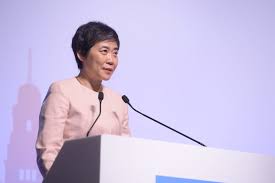Participating in the opening ceremonies of the UN World Tourism Organization (UNWTO) Regional Office for the Middle East, ICAO Secretary General Dr. Fang Liu drew attention to the fundamental synergies between aviation and tourism, and to how ICAO and UNWTO cooperation has delivered socio-economic benefits to countries all over the world.

“As we consider the priorities of governments with respect to sustainability and innovation in aviation and tourism, we must also recognize the strong interdependence between these two sectors and holistically appreciate why regulators and authorities are so invested in enabling new technologies, fuels and operations today,” she emphasized.
Aviation connectivity among nations has established a critical foundation for tourism markets and value chains, with well over half of the world’s 1.5 billion tourists pre-pandemic travelling by air, generating some 900 billion dollars in global GDP each year.
Aviation directly supports 15 of the 17 UN Sustainable Development Goals (SDGs) under Agenda 2030, but it also indirectly supports them through its important impacts on tourism development.
“By accelerating aviation innovations in digitization, unmanned aerial vehicles, and AI and blockchain applications, we’re able to drive critical efficiencies and improve our sector’s capabilities to generate economic growth, create jobs, and facilitate trade and tourism,” Dr. Liu noted.
The ICAO Secretary General drew the participants’ attention to the fact that the impact of the pandemic on air travel will still be deeply felt in 2021. ICAO’s latest projections point to international passenger volumes remaining somewhere from 66 to 76% below pre-pandemic volumes.
“For a sustainable recovery from the COVID-19 crisis,” Dr. Liu stated, “maximizing and balancing the benefits of tourism and air transport requires enabling regulatory environments, coherent policies, quality infrastructure, and comprehensive strategies to fully leverage the benefits offered by technological advances.”
At ICAO World Aviation Forum events and innovation symposia, transport ministers and heads of international organizations have addressed numerous challenges and opportunities arising from aviation innovation and frontier technologies.
Several key considerations have resulted from these discussions, including the need for substantial and systemic R&D and infrastructure investments correlated with a reliable degree of investment certainty and sustainable long-term business case assessments. “It’s therefore important for us to establish an enabling environment for new innovations to be assessed and implemented, one focused on performance-based outcomes and not technology-specific. [TravelDailyNews]















